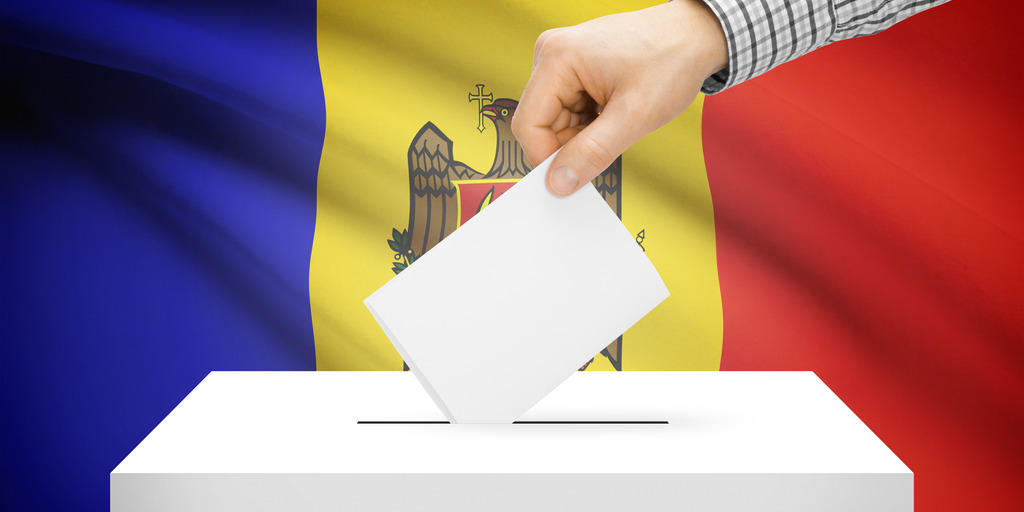The 101 seats in parliament will be divided up among four parties, that is, two older and two new parties. The Democratic Party of Moldova (PDM) and the Socialist Party of the Republic of Moldova (PSRM) are the two older parties. The former is neither democratic nor pro-European, while the latter is behind Igor Dodon, a self-proclaimed Kremlin-friendly leader who has been president since 2016. Oligarch Vlad Plahotniuc chairs the PDM, which has a firm grip on Moldova’s institutions of government, including the judiciary. Parties new to parliament include the reform-oriented opposition coalition ACUM (which means “now” in Romanian) and is led by Maia Sandu and Andrei Năstase, and the Şor party, which is closely tied to the PDM. The latter’s namesake, Ilan Şor, is suspected (along with Plahotniuc) of being involved in the “bank robbery of the century” when $1 billion vanished from Moldova’s banks in 2015 and triggered a debt crisis in Europe’s poorest country.
Determining whether the elections were conducted in a free and fair manner is crucial because if declared as such, Moldova will finally receive from the EU macro-financial assistance on the order of €100 million in loans and grants and another €36.3 million in budgetary support. However, these sums are modest in comparison to the vast sums of money smuggled through Moldova by organized crime. From 2010 to 2013, for example, the so-called laundromat scheme moved an estimated RUB 37 million (roughly a half billion U.S. dollars) through the country. This is unsettling, even for the Kremlin, which would like to see Vlad Plahotniuc indicted on money laundering, racketeering and even attempted murder charges, and thus extradited to Moscow.
Democracies threatened
The problem runs so deep and wide that it cannot be contained by the proposed EU funds and other bilateral forms of support, even if they are properly implemented. In fact, some observers refer to Moldova as a “mafia state” on the EU’s border. And thanks to the country’s special relationship with EU member state Romania, the individuals invested in these developments have at least one foot in the EU, which is also in part due to the new legislation allowing foreigners to purchase a Moldovan passport for €250,000.
The fact that the reformist opposition coalition won an almost 30% share of seats in parliament on its first run is astounding. But their success may mean little in a country in which their political opponents have blurred the distinction between vested interests, compliant state authorities and criminal forces. It must also be noted that the average monthly income in Moldova is only $200 while a small number of powerful yet unscrupulous individuals have amassed enough money to monopolize the political process and prevent free and fair competition that might usher in regime change. In the 2016 presidential campaign, for example, the Plahotniuc-controlled media ran a smear campaign against the pro-EU Maia Sandu, who lost the election with only 67,500 votes. Dodon, the self-declared Putin friendly candidate, was more or less ignored by the media.
Voting results from a mixed electoral system that was recently introduced under pressure from the PDM are not proportional to the votes cast by citizens. There were no compelling reasons to change the electoral rules which have introduced majoritarian seats in single mandate constituencies for 51 of 101 seats in which 15,000 votes determine a candidate’s election. At €10-€20 per vote, buying a seat in the Moldovan parliament amounts to anywhere from €150,000 to €300,000 and is considerably less expensive than it is in neighboring Ukraine. In Andrei Năstase’s district, the presence of an alternative candidate with a near-identical name bred confusion among voters. It was clear from the start, that ACUM would not do well under the changed electoral system. Since 2014, new political groups in Ukraine have sought to abolish their mixed electoral system precisely because of the ways in which administrative resources are used to influence majoritarian voting in single-member constituencies. However, the traditional parties have proved resilient to make this change happen.
In Moldova, post-election reports have only confirmed considerable doubts about the fair conduct of parliamentary elections. According to Promo-LEX election observers, 6.8% of minutes taken at polling stations in list constituencies were filled in with errors, compared with 7.6% in single-member constituencies. As a comparison, this was at 1.6% for the presidential election in 2016. The European Platform for Democratic Elections has declared the parliamentary election the “worst election in years – incidents on E-day almost doubled since 2016.”
A European future in the EU Neighborhood is at stake
Accepting the results of the election involves accepting the unfair weakening of ACUM – in exchange for supposed stability in Moldova by way of an alliance of oligarchs. In a Eurasia Daily Monitorarticle, Mihai Popşoi discusses how to deal with voters’ dissatisfaction following elections that are neither free nor fair, and refers to this as having to choose between a “pretense of stability” or a “promise of democracy.”
And yet, the opposition alliance has done everything right. The leaders of each party have worked together without waging battles against each other. Their remarkable success in achieving almost 30% of seats in parliament on their first run is all the more impressive given the attacks waged against them and their relative lack of financing and media attention.
In any case, the Association Agreement is not a useful instrument for democracy promotion in a transformation country in which those in power lack the political will for change. The EU and western observers are making a mistake in Moldova by reducing a complex situation to a pro- vs anti-EU dispute and by not focusing on the battle between pro-democratic and autocratic forces in the country. At the same time, there are indications that members of different camps, that is, Plahotniuc, the supposed European, and Dodon, who repeatedly brags of his good relations with President Putin, are in fact cooperating. The result is a gray zone in the middle of Europe in which a handful of powerful individuals benefit from endemic corruption and organized crime.
As the EU continues to turn a blind eye to dubious developments in Moldova and cite stability instead of setting clear borders by identifying worrisome events, criminal structures gain stronger footing in the country, making it all the more difficult to contain them as time goes on.
At the same time, it’s unlikely there will be enough citizens in the country to vote for a democracy in the next election. Moldova is suffering a mass exodus as its citizens increasingly recognize that reform-minded politicians have no real chance against those seeking to maintain the status quo or transition to an authoritarian regime.
Moldova’s parliamentary election does not bode well for Ukraine, where presidential elections are scheduled to take place in just a few weeks and parliamentary elections in the fall – and where opposition parties dream of achieving results anywhere near that achieved by ACUM. Events in the small country of Moldova have shown that those committed to European values at home and in international partnerships have little hope of ushering in change in a context of only imitated democratic processes.
Taking stock of the EU Neighborhood
After ten years of the Eastern Partnership, new ideas and a strategy are needed for cooperation with neighboring countries where democratic institutions are threatened or captured.
There are doubts about the effective outcomes associated with reform proposals and support for NGOs and civil society in a context where dominant traditional forces that lack the political will for change continue to influence decision-making and administrative processes to benefit their interests.
Methods now employed by election observers take into account elites’ capacity to manipulate an electoral system and buy votes. However, according to EPDE Chair Stefanie Schiffer, social media monitoring should be developed further. Social media are no longer merely an inexpensive means of media access for opposition parties; today, they are used to manipulate opinion and for defaming one’s political opponents.
It is therefore very important to rethink the support given for democratic political forces and political education. This involves developing a more strategic and context-dependent use of existing instruments – including the work of EU and US political think tanks and foundations, European political parties and European democracy promotion measures not laden with bureaucratic processes.


![[Translate to English:] Menschen am Tisch](/fileadmin/files/_processed_/7/5/csm_514562722IMG_0054_ecd98f6101.jpg)
![[Translate to English:] Teasertext einfügen](/fileadmin/files/_processed_/0/b/csm_182954355AdobeStock_71803618_KONZERN_bearST_EZ_6dfcef2783.jpg)
![[Translate to English:] Auf dem Bild: Irina Scherbakowa](/fileadmin/files/_processed_/0/2/csm_Irina_Scherbakowa_Lunchtime_2018_St-CC_Original_80454_6907823745.jpg)


